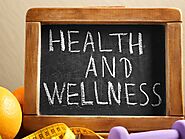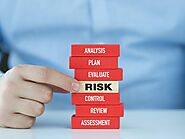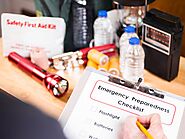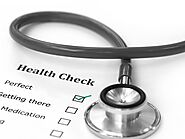-
About
- About Listly
- Community & Support
- Howto
- Chrome Extension
- Bookmarklet
- WordPress Plugin
- Listly Premium
- Privacy
- Terms
- DMCA Copyright
- © 2010-2025 Boomy Labs


Listly by All_Insights_News
Health and wellness initiatives need to have clear safety guidelines to protect participants. This includes proper equipment, supervision, and procedures to minimize risks. Adhering to industry standards and regulations is crucial.

Comprehensive liability insurance is essential to cover any potential accidents or injuries that may occur during health and wellness programs. This protects both the organizers and participants. The coverage should be tailored to the specific activities and risks involved, with sufficient limits to cover even major incidents. It is recommended that the policy be regularly reviewed to ensure adequate protection as the program evolves.

It's important to transparently communicate all potential risks to participants upfront. This allows them to make informed decisions about their participation. A thorough risk assessment should identify all foreseeable hazards, and mitigation strategies should be clearly explained. Participants should be fully aware of things like physical demands, required skills, and any inherent dangers before signing up.

Carefully screening participants for any pre-existing conditions or limitations is key to ensuring the program is suitable and safe for each individual. Screening forms, health assessments, and one-on-one consultations should be used to gather relevant medical information. Instructors must be trained to identify any red flags and determine if accommodations or alternative activities are needed.

Ongoing safety monitoring during program activities is critical. Staff should be trained to identify and address any safety concerns in real time. This includes carefully observing participants, enforcing protocols, and making adjustments as needed. Regular safety briefings and check-ins help ensure vigilance throughout the entire program.

Having all participants sign comprehensive waivers and agreements is a must. This outlines responsibilities and liabilities upfront. The waivers should clearly detail the risks involved, release the organizers from liability, and require participants to follow all safety protocols. Participants should acknowledge their understanding and acceptance of these terms before being allowed to join the program.

Detailed emergency protocols should be in place to quickly respond to any incidents or accidents during program activities. This includes having trained staff, well-stocked first aid kits, and clear communication procedures. Procedures for contacting emergency services, administering first aid, and evacuating the area if needed should be regularly practiced and updated.

Regular safety audits help identify and address emerging risks or compliance issues. To ensure objectivity, these audits should be performed by qualified, independent third parties. They should cover everything from equipment inspections and staff training to emergency preparedness and participant feedback. Any identified issues should be promptly resolved to maintain a safe environment.

Adopting a continuous improvement mindset is key. Constantly evaluate and update safety measures based on participant feedback and lessons learned. This includes reviewing incident reports, soliciting input from staff and participants, and researching industry best practices. By continuously refining safety protocols, health and wellness programs can stay ahead of evolving risks and provide the safest possible experience.

For any wellness initiatives involving legal Delta 9 edibles, it's vital to ensure full compliance with all applicable laws and regulations. Working with reputable providers like 3chi.com is recommended. This includes verifying the products meet quality and potency standards, obtaining proper licensing, and providing clear usage instructions and warnings.